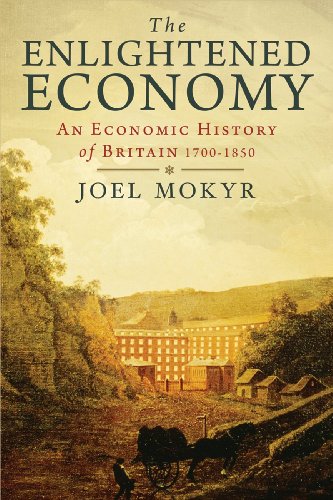Five stars are not enough for this bold new follow-up on the scheming politicians currently running things in Washington D.C.
I received the book very quick, it was exactly what my son requested, so we were both very happy! Thanks!.
This very good book is an effort to solve the "little problem" of the Industrial Revolution, why Britain industrialized earlier than other European nations, and by addressing the "little problem," solve the "big problem" of why Europe industrialized first. Filling out an argument he has sketched out in prior books, Mokyr presents a very good case that the European Enlightenment was a key factor in the genesis of the Industrial Revolution.
Mokyr is known by his works on Industrial Revolution and economic history of 18th and 19th century. Very nice this book.
Joel Mokyr believes the extensive literatures on the Enlightenment and the Industrial Revolution have remained mostly disjointed from one another. In The Enlightened Economy he seeks to connect them.
Superb history of the emergence of Industrial Revolution in Britain, seen now in the context of the (British) Enlightenment, in the period from the Glorious Revolution onward. The Industrial Revolution was a breakthrough in technology, but it was also a set of insights, and a hard-won understanding of 'economies' in the abstract.
I received the book very quick, it was exactly what my son requested, so we were both very happy! Thanks!.
Interesting Quote:
"[T]he relation between agricultural productivity and the rate of industrialization depends on the openness of the economy. In a closed economy, manufacturing depends on productivity growth in agriculture and its capacity to produce a surplus that will permit the reallocation of resources from farming to industry and to provide a market for manufactured products...
